Faculty
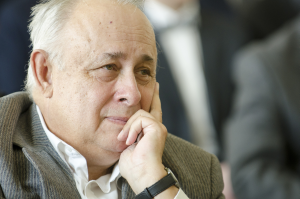
Jerzy Axer
Classical philologist, founder of the Centre for Studies on the Classical Tradition in Poland and East-Central Europe (OBTA) at the University of Warsaw, now part of the Faculty of “Artes Liberales” of which Jerzy Axer was the first Dean. Jerzy Axer founded and directed for many years the International School of Humanities (MSH), and the Interdepartmental Individual Studies in the Humanities (MISH). Elected member of the Polish Academy of Sciences (PAN) and of the Polish Academy of Arts and Sciences (PAU). His fields of interest include Cicero, Neo-Latin studies, textual criticism, theatre, and the reception of Classical Antiquity as well as issues from the field of Animal Studies. He is the author of more than 500 publications: books, editions of source texts, and academic papers. Professor Axer will be happy to work with PhD students interested in the reception of Ancient tradition throughout history, up to the 21st century. Provided that the candidate has clearly articulated scholarly interests, Professor Axer will welcome projects focused on non-conventional readings of classical texts (Ancient and Polish), the theory and practice of Ancient rhetoric, the interactions between literature and history of any historical era, textual criticism and the history of theater.
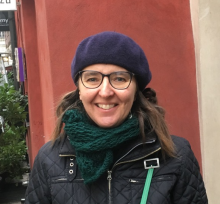
Kalina Burnat
Kalina Burnat studied Biology at Warsaw University, received PhD and D.Sc. degrees at the Nencki Institute of Experimental Biology, Polish Academy of Sciences. After postdoctoral NATO scholarship at the KU Leuven she conducts research on animal models and patients with retinal diseases at Nencki Institute. Dr Burnat is interested in neuroplasticity processes sculpting visual system during early development and after injury. In daily life, central visual information processed in higher brain structures is associated with conscious sharp vision. Whereas, information from the visual periphery makes us aware of things which might happen, bringing those which our peripheral visual system will find important to the central visual processing, into the scope of further conscious and detailed analysis. The visual system is retinotopically organized, that is neighboring cortical regions respond to neighboring points in visual space. We undoubtedly know that these orderly maps are not static but instead remain malleable throughout life. Evidence for such plasticity comes from sensory deprivation or specific sensory stimulation, these manipulations force the cortical neurons to deal with a specifically new sensory environment and cause changes of their functional properties. Currently, she explores in the clinical context, the possibility of cortical areas driven by central retina to allocate their properties to the peripheral counterpart. From transdisciplinary view dr Burnat is interested in cultural and environmental impact on visual perception and in the comparative intra-species behavioral studies. Privately she enjoys swimming in nature and art.
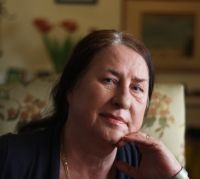
Ewa Czerniawska
Is a professor of social sciences in the field of psychology; former Dean of the Faculty of Psychology, University of Warsaw. Her scientific interests are: memory and learning, especially strategic activity and metacognition; human olfaction and olfactory memory; the role of music in cognitive processes. She is the author, co-author or editor of 8 books, among other: Dynamika zachowań strategicznych w uczeniu się z tekstów podręcznikowych [Dynamics of the strategic behaviors in learning from textbooks](1999), Psychologia węchu i pamięci węchowej [Psychology of olfaction and olfactory memory] (with J.M. Czerniawska-Far, 2007), Jak się uczyć?[How to learn?] (with M. Ledzińską, 2007), Psychologia nauczania. Ujęcie poznawcze [Instructional psychology. A cognitive approach] (with M. Ledzińską, 2011), Muzyka i my. O różnych przejawach wpływu muzyki na człowieka [Music and us. About different influences of music on men](editor, 2012) and about 100 papers and chapters.
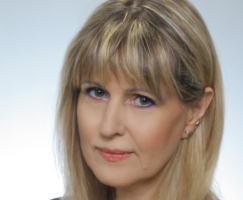
Ewa Domańska
Ewa Domańska is a Professor of Human Sciences at the Department of History, Adam Mickiewicz University in Poznań and a recurrent visiting Associate Professor at the Department of Anthropology, Stanford University. She is a President of the „International Commission for the History and Theory of Historiography” (CISH); a member of the Committee of the Cultural Sciences as well as an expert of the Committee of Historical Sciences of the Polish Academy of Science. Domanska is the author and editor of 20 books and numerus articles published in Poland and abroad. Her teaching and research interests include comparative theory of the humanities and social sciences, history and theory of historiography, ecological humanities, ecocide and genocide studies. Recently she published: Nekros. Wprowadzenie do ontologii martwego ciała [Necros: An Introduction to the Ontology of Human Dead Body and Remains] (2017, in Polish).
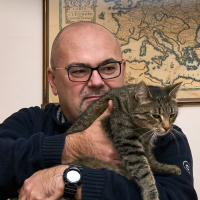
Paweł Golik
He received his PhD in 1999 (University of Warsaw and the Centre National de Recherche Scientifique in France). After post-docs in France and the USA (Emory University, Atlanta), he started working as a professor of genetics and evolution at the Faculty of Biology in Warsaw. His research is focused on the evolution of mitochondrial gene expression, but he also worked on the genetic history of human populations. In a transdisciplinary setting he helps students in exploring the impact of modern biology on our society, while making sure that such interdisciplinary inquires have a sound scientific background. Dr Golik is also interested in the cooperation between artists and researchers in bio-art.
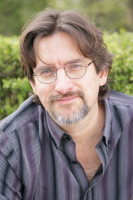
Cleveland Hicks
Cleveland Hicks’ primary research interest is in the distribution and behavior of unstudied populations of great apes across Africa’s Congo Basin, in particular of chimpanzees, Pan troglodytes. At every new site where chimpanzees have been studied, they have been found to possess site-specific suites of behavioral traits, argued to represent cultural diversity. Large tracts of forests, particularly in the Northern Democratic Republic of the Congo, remain unexplored, and it is unknown whether or not they are inhabited by apes, or if so, how many apes. By conducting systematic surveys using line transects as well as recces and presence / absence data, we can develop a clearer picture of the distribution of African great apes in these hitherto unexplored forests. In addition, Dr. Hicks seeks to understand the distribution of ape traditions, how they map onto genetic diversity, and how they are affected by proposed ape barriers such as rivers. Understanding where the apes live and how their behaviors are similar to or different from those of other populations is a crucial tool in assuring their survival, and also has much to tell us about our own biological and cultural evolution.
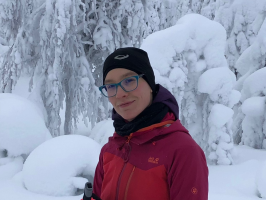
Ewa Róża Janion
Ewa Róża Janion is a post-doctoral fellow at the Faculty of „Artes Liberales” at the University of Warsaw. Her doctoral thesis, concerning interactions between the Philhellenic movement and the 19th century Greek identity discourses, touched upon the questions of nationalism and gender representations. Now her research focuses mainly on the Modernist literature, specifically the poetry of C.P. Cavafy and its most recent queer interpretations. Her other fields of interest are digital humanities and minority cultures. With a team of experts, she develops a textological conception for a digital edition of Juliusz Słowacki’s travel notebook, which will be launched in the Web in the autumn of 2018. This summer of 2018 she starts a new intellectual enterprise: the research on the Calabrian Greek language and literature. In her spare time, she practices biking and martial arts.
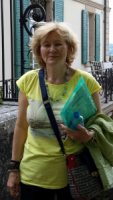
Maria Kalinowska
Professor at Faculty of “Artes Liberales” of the University of Warsaw, is a renowned specialist of Polish literature, with a particular interest in the “great Polish Romantic poets” (Mickiewicz, Słowacki, Norwid). She has conducted research into Romantic drama and its theatrical performances, textual criticism of Romantic literature (especially Słowacki), and into Romantic reception of classical antiquity, their Hellenism and relationship with ancient and modern Greece. Head of the program „ Philhellenism in Poland”. Author of books on Romantic literature, among which are: Mowa i milczenie – romantyczne antynomie samotności (1989) [Speech and Silence: Romantic Antinomies of Solitude]; Grecja romantyków. Studia nad obrazem Grecji w literaturze romantycznej (1994) [Greece of the Romantics: Studies on the Perception of Greece in Romantic Literature]; Juliusza Słowackiego „Podróż do Ziemi Świętej z Neapolu”. Glosy (2011) [Juliusz Słowacki’s „Journey to the Holy Land from Naples”. Voices]; (co-ed.) Filhellenizm w Polsce [Philhellenism in Poland] vol. I, II, 2007, 2012; (co-ed.) Sparta w kulturze polskiej [Sparta in Polish Culture] vol. I, II, 2014, 2015.
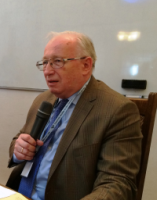
Jan Kieniewicz
Historian. Professor at the University of Warsaw. Director of Iberian Studies 1975-1981, Deputy Director of Institute of History 1981-1988, since 1996 Professor at Faculty of “Artes Liberales.” Areas of interest: Modern and Contemporary World History, European expansion, colonialism and post-colonialism, civilizations of East and West, theory of social systems and eco-systemic approach. Publications on history of India, Spain, Poland and Europe. Author of 600 publications i.a. (in Polish): History of India (1980, 1985, 2003), From Expansion to Domination. A Theory of Colonialism (1986), Encounters with the East (1999), Introduction to the Civilization of East and West (2003), Expansion, Colonialism, Civilization (2008), “A word on lips forgotten…” Polish Intelligentsia and its Difficult Love of the Motherland (2012), Postcolonial Perspectives in Poland, Poland from Postcolonial Perspective [ed] (2016), as well as, in Spanish, Historia de Polonia (2001) Ambassador of the Republic of Poland in Spain 1990-1994, since 1998 President of the Board of the Institute “Artes Liberales” Foundation.
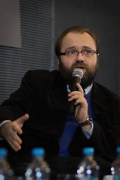
Piotr Kletowski
Piotr Kletowski Phd. (1975). Assistant Professor (Institute of the Middle and Far East, UJ, Cracow). Specialist of the Film Studies, especially in the field of Authorship and Asian Cinema. Co-worker of USWPS in Warsaw and lecturer of The PISF Academy of Polish Cinema. Author over 100 publications including several monographs authors of cinema such of Takeshi Kitano (Death is my Victory. A Cinema of Takeshi Kitano, 2001), Stanley Kubrick (Film Odyssey of Stanley Kubrick, 2005), Pier Paolo Pasolini (PPP – The Filmworks, 2013) and Asian Cinema (Cinema of the Far West, 2013). Co-author (with Piotr Marecki) of the books-interviews with independent Polish directors such as Andrzej Żuławski (2008), Grzegorz Królikiewicz (2011) and Piotr Szulkin (2012). Film critic in “Kino”, “Rzeczpospolita”, “Projector”. Creator and lecturer of The Open Academy of Japanese Cinema in The “Manggha” Center in Cracow.
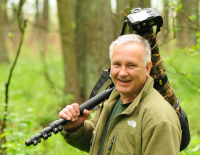
Marek Konarzewski
Professor Konarzewski received undergraduate and graduate degrees in biology at the University of Bialystok (formerly University of Warsaw, Bialystok branch). He pursued PhD and D.Sc. degrees at the Polish Academy of Sciences Institute of Ecology, and then returned to the University of Bialystok, after postdoctoral work at the University of California, Los Angeles. He is now a Professor of Biology at the University of Bialystok’s Institute of Biology, and Visiting Professor at the Faculty of Liberal Arts of University of Warsaw (for full list of publications see Google Scholar). His main research interests are in the field of physiological ecology and the emerging field of evolutionary physiology. At the Faculty of “Liberal Arts” Professor. Konarzewski mainly pursues the crossroads of human (and non-human) nature and culture from a Darwinian perspective.
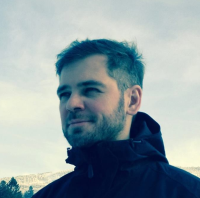
Piotr Kulas
Sociologist, historian of ideas, assistant professor at the University of Warsaw. He received his PhD in Sociology form University of Silesia, and Habilitation (post-doctoral degree) in Sociology from the University of Warsaw. He is the author of Intelligentsia denied. Ethos and identity of young Polish intellectuals’ elites. Warszawa: WN Scholar 2017 (in Polish); Conversations about intelligentsia, Warszawa: WN Scholar 2016 (in Polish); A Tournament of Hunchbacks. Problems of identity in the works of Witold Gombrowicz and Czesław Miłosz (Katowice 2009, in Polish). He co-edited with Paweł Śpiewak the book From intelligentsia to postinteligentsia. Doubtful hegemony. (Warszawa 2018) and the monographic numer „Kultura Współczesna”: Postinteligentsia. Contemporary forms of intelligentsia. He published in „Studia Socjologiczne”, „Kultura i Społeczeństwo”, „Przegląd Polityczny”, „Przegląd Filozoficzny. Seria Nowa”, „Przegląd Socjologii Jakościowej”. In 2010, he received an individual award of the second degree of the Minister of Science for distinguished doctoral dissertation.
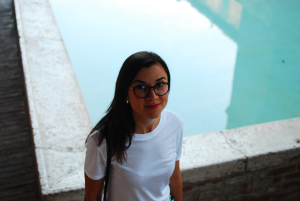
Julia Lewandowska
Dr Lewandowska is an Assistant Professor at the Faculty of "Artes Liberales" at the University of Warsaw. Between 2010-2015 she was a National Science Centre-funded doctoral fellow; between 2010-2011 and 2013-2014 she has held research scholarships at the Centre for Women's History (ADHUC) at the Universitat de Barcelona and at the Superior Council of Scientific Research (CSIC) in Madrid. Her primary field of scholarly specialization is women’s cultural and literary history in early modern Spain and colonial Latin Americas with a focus on sociocultural notions of religiosity, authority, and gender. Areas of teaching and research interest include: feminist theology, literary authority and authorship in early modern culture; history of emotions in religious discourses. She has published in scientific journals, such as: Itinerarios, Terminus, Teksty Drugie, and publishing houses such as: Iberoamericana, Renacimiento, Cambridge Scholar Publishing. She is a fellow member of PRO RHETORICA Interdisciplinary Centre of Applied Rhetoric (IBL PAN); Female Spirituality Project (Women´s Archive Association, IBL PAN), and the European Society for Women in Theological Research (ESWTR).
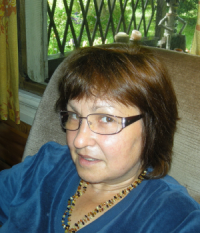
Dorota Ławecka
Archaeologist, assistant professor at the University of Warsaw, Faculty of Archaeology. Received PhD and habilitation degree from Faculty of History, University of Warsaw. Her field of interest include archaeology of the Chalcolithic and Early Bronze Age in Mesopotamia.
Experienced field archaeologist, having taking part in 28 campaigns in Iraq and Syria. Author of three books in Polish: Wstęp do archeologii, 2000 (Introduction to Archaeology), Północna Mezopotamia w czasach Sumerów, 2006 (Northern Mesopotamia in the Sumerian period), Północna Babilonia w okresie wczesnodynastycznym, 2010 (Northern Babilonia in the Early Dynastic Period). Currently involved in publishing results of survey project carried out between 2012-2017 in Kurdistan Autonomous Region of Iraq.
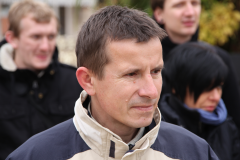
Piotr Matczak
Piotr Matczak is the head of the Department of Local and Regional Communities Research at the Institute of Sociology at the University of Adam Mickiewicz in Poznan. He also worked at the Institute of Agricultural and Forest Environment of the Polish Academy of Sciences, lectured at the Central European University in Budapest, Hungary. He has worked in several research projects under the EU Framework Programs, on: climate change, rural development, security, and flood risk management. His interests focus on the institutional aspects of public policies related to local management, natural disasters, water management, climate change and environmental protection. He was the secretary of the Committee for Research on Water Risks at the Presidium of the Polish Academy of Sciences (2011-13). He is a member of the Research Network of Sociology of Risk and Uncertainty and a member of the Research Network of Society and Environment of the European Sociological Association, the Chairman of the Environmental Sociology Section of Polish Sociological Association. Currently, he is principal investigator of projects: "Video monitoring as a tool to counteract crime" and "The impact of institutional changes on the provision of ecosystems provided to local communities by trees and shrubs". He is Editorial Board Member of the Journal: Society and Natural Resources Journal (2019-21).
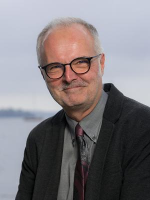
Jan Miernowski
Professor at the University of Wisconsin-Madison and Visiting Professor at the Faculty of “Artes Liberales” of the University of Warsaw. Jan Miernowski’s research and teaching interests focus on the aesthetic response of literature to the diverse discourses of early modern philosophy, theology, science and politics, as well as the relationship between humanism, antihumanism and posthumanism. His doctoral thesis was devoted to the poetic expression of Renaissance logic. The subsequent books comprise a wide-ranging study of the impact of negative theology on French 16th-century poetry, on Medieval and Renaissance philosophy, as well as specifically on the poetics of Montaigne’s skepticism. Miernowski’s most recent books include a monograph on the aesthetics of hatred in French and Francophone literature from the 16th to the 21st century; an edited volume on the interplay between the grotesque and the sublime; and an edited collection of essays on the dialogue between Renaissance humanism and 20th-century antihumanism. His current project tests the conditions of possibility of a humanism for our posthuman times.
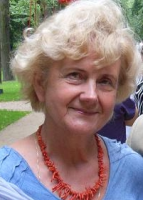
Alina Nowicka-Jeżowa
Professor at University of Warsaw specializing in Polish and Comparative Literature of the 15th-18th centuries. Member of the Polish Academy of Sciences and several other learned societies. Director of several research centers: “Polish Humanism. Legacy and Contemporaneity,” “The Culture of the Polish-Lithuanian Commonwealth,” “Humanism. Hermeneutics of Values.” Author and editor of 350 publications, among which are several monographs and collective volumes, among others, in Polish: Early Modern Polish Madrigals; Songs of Time of Death; Sarmatians and Death; Polish Baroque between Europe and Sarmatia; Encounters in the Labyrinth with Jan Kochanowski’s Poetry; and in Italian: Morsztyn e Marino. Un dialogo dei poeti; Kochanowski. Dieci saggi.
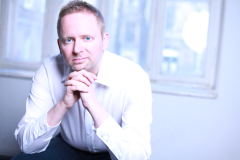
Michał Oleszczyk
Michał Oleszczyk -- Assistant Professor at Artes Liberales Department at University of Warsaw. He graduated from Film Studies department of Jagiellonian University and finished doctoral program at American Studies and Polish Diaspora Institute of Jagiellonian University. He defended his Ph.D. in 2012. He published more than twenty chapters in Polish film studies anthologies, as well as co-edited (with Kamila Kuc and Kuba Mikurda) a volume on the work of Walerian Borowczyk (Boro: L'Isle d'amour, Berghahn Books 2015). He wrote the first Polish monograph of the work of Terence Davies (Gorycz wygnania; Kraków 2008) and co-authored (with Kuba Mikurda) two volumes of interviews with contemporary filmmakers, Guy Maddin and Brothers Quay. Between years 2013-2016 he worked as the Artistic Director of Gdynia Film Festival, Poland's largest festival devoted to showcasing Polish film production. His writing on film has appeared in "Kwartalnik Filmowy", "Cineaste", "Sight & Sound", "RogerEbert.com", "Variety", "Hollywood Reporter". His interest is the history of Polish and American film, as well as film analysis and history of documentary film. He also works as a translator: his translation of J. Hoberman and Jonathan Rosenbaum's "Midnight Movies" appeared in 2012.
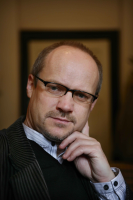
Bogusław Pawłowski
Professor of biological anthropology also interested in evolutionary psychology. Prof. Pawłowski is the Head of the Dept. of Human Biology at the University of Wroclaw and the President of the Polish Society for Human and Evolution Studies (PTNCE). Scientific interests: evolutionary basis of human behavior, preferences and physical attractiveness as potential signal of an individual’s biological quality. He published more than 80 papers, for instance, in Nature, Current Anthropology, Scientific Reports, PNAS, Evolution & Human Behavior, Biological Psychology or Poetics, and several book chapters with world widely recognized publishers. He has published in Polish The Biology of Human Attractiveness and co-authored a popular science book entitled Naked Mind (in Polish). He was recognized for his efforts to popularize science: “ Popularyzator Nauki 2016” – main award in the competition organized by the Ministry of Science and Higher Education of Poland and Polish Press Agency in 2016.
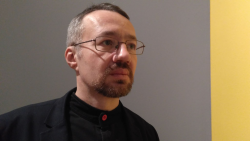
Ivan Peshkov
Ivan Peshkov received his PhD degree in Development Studies from the Poznań University of Economics, Poland, and his MA in Economic History from the Adam Mickiewicz University, Poznań, Poland He is currently a Head of the Center for Central Asian Studies (Adam Mickiewicz University, Poznan, Poland) . His current research focuses on politicization of indigenousness in the Russo-Chinese border areas, frontier biopolitics in Eurasia, the Evenki (in Siberia and China) and memory work in Inner Mongolia and Transbaikalia. He carried out research in the Chinese, Russian, and Mongolian border triangle and investigated the main economic and historical processes that characterize the area.
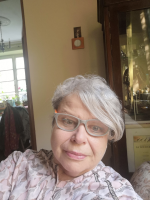
Joanna Pijanowska
Professor of biology, former dean of the Faculty of Biology, University of Warsaw. Specialized in evolutionary and behavioral ecology, mostly in interspecific interactions and evolution of anti-predator strategies in aquatic prey. Teaching ecology and limnology both in the lab and in the field, evolutionary and behavioral ecology, conservation biology and environmental protection and related topics. Engaged in different extra mural activities dedicated to nature conservation. Since a few years involved in interdisciplinary teaching programs at the crossroads between nature and culture at the Faculty of “Artes Liberales.”
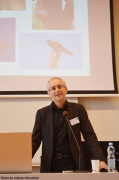
Piotr Podlipniak
Piotr Podlipniak is an assistant professor at the Institute of Musicology of Adam Mickiewicz University in Poznań, Poland. His main areas of interest are the cognitive basis of music, biological sources of human musicality, musical universals, vocal communication, hearing and music, music and emotions, musical semiotics, the origin of music and language, the evolution of preconceptual and conceptual meaning, music perception, and methodology of musicology. He is author of two books: Uniwersalia muzyczne [Musical universals] (Poznań: Wydawnictwo Naukowe PTPN, 2007) and Instynkt tonalny. Koncepcja ewolucyjnego pochodzenia tonalności muzycznej [Tonality Instinct: The Concept behind the Evolutionary Origin of Musical Tonality] (Poznań: Wydawnictwo Naukowe UAM, 2015), and the numbers of articles. In his musicological research, he refers to such academic disciplines as cognitive science, evolutionary biology, ethology, evolutionary psychology, cognitive psychology, psycholinguistics, and comparative anthropology. He is an editor-in-chief of the journal Interdisciplinary Studies in Musicology and a president of Society of Interdisciplinary Musicology.
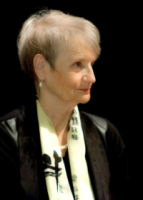
Maria Poprzęcka
Current position: professor at Artes Liberales Faculty, University of Warsaw. Art historian „in expanded field”, art critic, essayist, close to the visual and cultural studies. Author of several books and articles concerning art and art criticism of 19th-21st centuries. Specially interested in the history of art theory, the long duration of images, the migration of visual motives and stereotypes, the survival of artistic topics and traditions in today mass-culture.
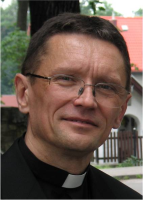
Stanisław Rabiej
Visiting Professor at the Faculty of “Artes Liberales,” Chair of the Department of Ecumenical Research and Jean Monnet Chair at the Faculty of Theology at the University of Opole: Ecumenical ways of reconciliation in Europe (program built around unresolved conflicts in contemporary Europe, for example: Russian-Ukrainian, Serbo-Croat, Catalan-Spanish). Visiting Professor at Charles University in Prague (2001-2004), member of the Committee of Theological Sciences at the Faculty of Humanities and Social Sciences of the Polish Academy of Sciences (2015-2019). He specializes in theological anthropology, ecumenism and sociology of religion. Author of over 160 publications. Among them: Unity of Europe and Division of Christianity: 1950-2000 [Jedność Europy a podział chrześcijan: 1950-2000]; The Man as the route of Europe [Człowiek drogą Europy - Člověk cestou Evropy]; National and Ethnic Minorities in the Integration Process of Europe [Poszerzona Unia Europejska – szanse i zagrożenia dla mniejszości narodowo-etnicznych]; Chemins de réconciliation en Europe I-III; Judaica of Opole; Jewish cemetery in Opole.
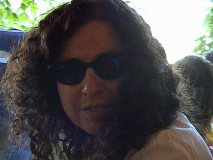
Shoshana Ronen
Professor Shoshana Ronen is the head of the Hebrew Studies Department at Warsaw University. She is the author of In Pursuit of the Void: Journeys to Poland in Contemporary Israeli Literature (2001); Nietzsche and Wittgenstein: In Search of Secular Salvation, (2002); Polin – A Land of Forests and Rivers: Images of Poland and Poles in Contemporary Hebrew Literature in Israel (2007), and A Prophet of Consolation on the Threshold of Destruction: Yehoshua Oziasz Thon, an Intellectual Portrait, (2015). She is the co-editor of Polish and Hebrew Literature and National Identity; A Romantic Polish-Jew: Rabbi Ozjasz Thon from Various Perspectives (2015), and The Trilingual Literature of Polish Jews From Different Perspectives: In Memory of I. L. Peretz (2017).
She is interested in modern Hebrew literature, Jewish thought, and modern philosophy. Particularly she is dealing with questions like: The Holocaust in Hebrew literature; memory, identity and nationhood in modern Hebrew literature; Hebrew literature in the Polish land; Jewish philosophical and theological thinking after Auschwitz, and women in Judaism.
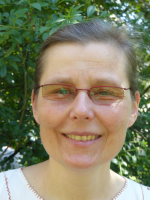
Anna Skolimowska
Classical scholar, editor of medieval and Renaissance correspondence: Korespondencja żupnika krakowskiego Mikołaja Serafina [Correspondence of Cracow salt mine administrator Mikołaj Serafin], the series Corpus Epistularum Ioannis Dantisci, the internet publication Corpus of Ioannes Dantiscus Texts & Correspondence. Anna Skolimowska leads the Laboratory for Source Editing and Digital Humanities of the Faculty “Artes Liberales,” University of Warsaw. She specializes in Latin paleography, source studies, critical editing; her research interests also include Spanish Erasmianism in the light of Dantiscus’ correspondence, the language and literary apparatus of Latin letters during the Renaissance, and the history of old books and collections. She is a member of the Polish Historical Society (PTH), the Polish Philological Society (PTF), and of the International Association for Neo-Latin Studies (IANLS). Non-academic interests: choral singing, Chinese martial arts.
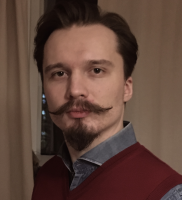
Krzysztof Skonieczny
Krzysztof Skonieczny is an Assistant Professor at the Faculty of “Artes Liberales”, University of Warsaw. In 2011/2012 he was a visiting scholar at the Department of Comparative Literature at SUNY at Buffalo, and in 2012/2013 he spent six months as a researcher at the Centre d'Études Supérieures de la Renaissance in Tours. In 2014, he received his PhD in Philosophy from the Polish Academy of Sciences, having completed the International PhD Program “The Traditions of Mediterranean Humanism and the Challenges of Our Times: the Frontiers of Humanity” at the Faculty of “Artes Liberales." His interests include political philosophy, psychoanalysis, posthumanities, animal studies and contemporary American literature, which he occasionally translates. He is currently working on a book manuscript entitled The Immanent Animal. An Essay in Philosophical Zoology.
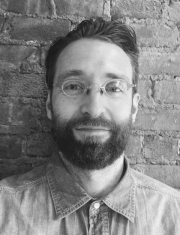
Grzegorz Sokół
Grzegorz Sokół is a cultural anthropologist working at the intersection of cultural and political theory. He received his M.A. and Ph.D. from the New School for Social Research in New York, where his dissertation work explored the changing definitions of depression in postsocialist Poland and the ways individual subjectivity is reshaped in psychiatric and psychotherapeutic treatment. He has taught courses in socio-cultural theory, medical anthropology as well as design studies at Eugene Lang College and Parsons School of Design, among others. Bringing together his interests in constructions of truth, capitalist realism, subjectivity, and media, he is currently developing a new research project examining the production of fiction and reality in contemporary capitalist public cultures. Besides teaching and research, dr. Sokół has worked as a journalist and news producer, he has translated academic books and articles from Norwegian, Swedish, Polish and English, and he is currently completing his first documentary film portraying the experience of coming of age as a Muslim Tatar in small-town Poland.
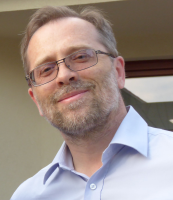
Paweł Stępień
Paweł Stępień is a Professor of literary studies at the Faculty of „Artes Liberales” of the University of Warsaw. In his books he reveals the secrets of works of old Polish literature, captured as a microcosm of the culture of the times in which they arose. He focuses primarily on medieval religious literature and its ties with theology, spirituality and the theory of beauty. Moreover he investigates inter alia Platonic inspirations of Polish literature in the 16th–17th centuries and libertinism in Polish poetry of the 17th century. He interprets also Polish poetry of the twentieth century, showing how it relates to the cultural tradition of Poland and Europe. At the Faculty of „Artes Liberales” Pawel Stepien is responsible for a double degree master’s program “Cultural and Intellectual History between East and West.” The program is implemented in cooperation with University of Cologne and Research University Higher School of Economics in Moscow.
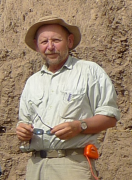
Franciszek Stępniowski
Archaeologist, at present assistant professor/reader at the Institute of Archaeology, University of Warsaw, and “guest”-PhD advisor at the Artes Liberales Faculty. Active in the field (numerous excavations and surveys in Poland, and in the Near East: rescue projects in Iraq and Syria, and at the sites: Palmyra, Tell Bi’a, Tell Harmal, Qal’at Sherqat/Aššur, Tell Bakr Awa, for the Autumn 2019 season – Nineveh looked forward). Having been lecturing introductory courses on archaeology (methods and aims; outline of archaeology of the Ancient Near East), carrying out a pro-seminar on the subject, advanced stage lecture (theory/methodology of archaeology), and several “general interest” lectures for non-archaeology students (e.g. on the religion of Mesopotamia, cuneiform literature, history of Assyria). Participating in the works of the Pre- and Protohistorical Sciences Committee, Polish Academy of Sciences (History and Methodology, Theory of Archaeological Research Commissions). In 2010-2017 – chief editor of “Światowit” – annual of the Institute of Archaeology, UW.
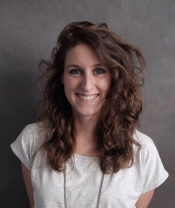
Monika Stobiecka
Monika Stobiecka holds a PhD from the Faculty of „Artes Liberales”, University of Warsaw. She received MA in History of Art (specialization: modern art) and MA in Archaeology (specialization: museum studies and popularization of archaeology) from the University of Warsaw. In 2014 Monika was granted with an award for students given by the Polish Ministry of Science and Higher Education — „Diamond Grant”. Monika collaborated with National Museum in Warsaw, Museum of Architecture in Wrocław, Foksal Gallery and Zachęta Polish National Gallery. She was granted scholarships by the Lanckoroński Foundation in 2016 (research at British Museum and John Soane's Museum), the Kościuszko Foundation in 2018 (research stay at Stanford Archaeology Center), the Foundation for Polish Science in 2019 (START scholarship for the best young researchers from Poland). She is interested in museum studies, critical heritage studies, archaeological theory. Currently she explores the intersection of contemporary art and archaeology.
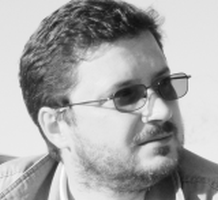
Robert A. Sucharski
Professor and Dean of the Faculty of “Artes Liberales” at the University of Warsaw. Classical philologist, linguist - in his research he studies mainly the language and the culture of Ancient Greece (with the special focus on the Mycenaean epoch) as well as the reception of the Classical antiquity in later periods (mainly the Renaissance).
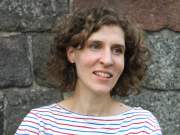
Katarzyna Szafranowska
Katarzyna Szafranowska is a philosopher, cultural theorist and non-governmental
activist. She is an alumna of Faculty of “Artes Liberales”, where she defended her MA (2011) and PhD theses
(2016) — with the latter completing a fellowship granted by the Foundation for Polish Science (2012—2016).
In 2013 she held a research scholarship in the Department of Theology and Religious Studies of the
University of Nottingham. Her doctoral dissertation tackled the problem of novelty and repetition in
literature, focusing on the tension between subversion and canonicity.
She is a keen teacher: among others, she has taught courses in Gilles Deleuze, Jewish philosophy, feminist
theology, and popular culture.
Her research interests encompass the minor discourses, the philosophical critique of violence, and the
notion of hospitality. Currently, she investigates the possible philosophical counter-narratives to
populism.
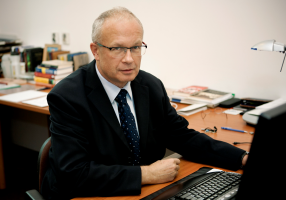
Marek Trippenbach
Professor Marek Trippenbach is a theoretical physicist working at the Department of Physics of University of Warsaw. With around 150 scientific publications (including article in Nature) he is an expert in the field of light – matter interactions, specialized in particular in quantum and nonlinear optics and cold atom physics. He was a co-founder of the Chair of Complex Systems Modelling and is interested in the studies on the border of Natural Sciences and Humanities. He worked with few Noble Prize winners in National Institute for Standard and Technology in Colorado and Gaithersburg and spend 5 years working at Ben Gurion University in Beer Sheva in Israel. He served for 8 years as a vice-Dean for Scientific Research at the Department of Physics of the University of Warsaw. He was a coordinator of several International and Polish scientific grants and received The Wojciech Rubinowicz Scientific Award in 2006 and Fulbright Fellowship in 2010/2011.
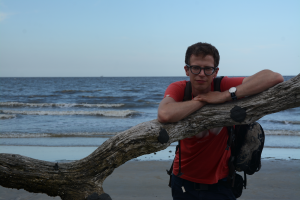
Kamil Wielecki
Kamil Wielecki is a broadly trained anthropologist and social philosopher affiliated as an Assistant Professor at the Faculty of “Liberal Arts” at the University of Warsaw. He has undertaken long-term ethnographic fieldwork research in Moldova, Kyrgyzstan and Russia. He received studentships at the Kyrgyz National University in Bishek (2005) and the University of Vienna (2005-2006). He was also a Visiting Scholar at the Higher School of Economics in Moscow (2011-2012) and at the Central European University in Budapest (2013). In 2017-18, within a scholarship of the Polish-U.S. Fulbright Commission, he served as a Visiting Professor at Wagner College (New York City). He is the author of a monograph and over a twenty of scholar and public-interest articles published in Polish, Russian and English. His scholar interests cover postsocialist studies, the political economy of capitalism, studies of Eastern and Western civilizations, and economic and philosophical anthropology.

Paweł Wojtas
Paweł Wojtas is an Assistant Professor at the Faculty of “Artes Liberales” at the University of Warsaw. He completed his MLitt degree in English Studies at The University of Stirling (2008), and PhD at the University of Warsaw (2012). He has published on contemporary English literature and international modernisms. His current research is centered on disability issues in the works of J.M. Coetzee. Executive editor of the scholarly journal Language and Literary Studies of Warsaw.
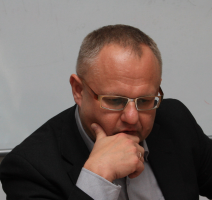
Szymon Wróbel
Szymon Wróbel is a professor of philosophy at the Faculty of “Artes Liberales” of the University of Warsaw and at the Institute of Philosophy and Sociology of the Polish Academy of Sciences. He graduated in psychology (specialization: clinical psychology) at the Institute of Psychology, Adam Mickiewicz University in Poznań. For many years associated with the Pedagogical and Artistic Faculty of Adam Mickiewicz University in Kalisz. He is the author of numerous books and articles scattered in various scientific journals. His latest books include Deferring the Self and Grammar and Glamour of Cooperation. Lectures on the Philosophy of Mind, Language and Action, published in 2013 and 2014 by Peter Lang. In Polish: Exercises in Friendship, Retroactive Reading. Pedigrees of Contemporary Philosophical Thought and Polish Depressive Position. From Gombrowicz to Mrożek and Back published by the Krakow Publishing House Universitas in 2012, 2014 and 2015. His last book, also in Polish, Philosopher and Territory. The Policy of Ideas in the Thoughts of Leszek Kołakowski, Bronisław Baczko, Krzysztof Pomian and Marek J. Siemek was published by the IFiS PAN Institute in 2016. Currently he leads the experimental Laboratory of Techno-Humanities at the Faculty of “Artes Liberales.” His current interests focus on "ontologies of failure" and "humanities of looting" based on the tactics of studying the remains of other discourses, shreds of incomprehensible languages, obsolete thoughts, abandoned sentences, interrupted gestures, unfinished intentions, dead poses, enigmatic images.